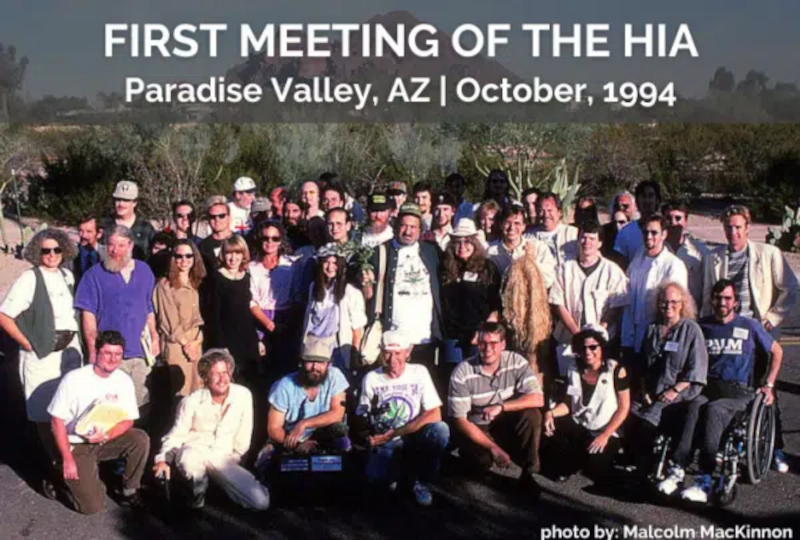One of the longest-standing cannabis organizations in the U.S., the Hemp Industries Association (HIA), has apparently gone dormant – if not collapsed outright.
Attempts by HempToday to reach officers and board members, including Kentucky farmer Mike Lewis, still listed on the HIA website as president, were mostly unsuccessful.
Jody McGinness, who had served as executive director since 2020, left his position in June 2024, according to his LinkedIn profile. Also, while the organization’s website is still online, emails sent to HIA addresses were all returned.
Two persons listed as board members on the HIA website told HempToday they had no specific notification that the organization has shut down, but indicated they were unsure of the trade group’s status.
“I haven’t done any work with HIA since maybe May of last year,” wrote one of the board members who responded to HempToday, adding “I think there was some reorganization being done. As far as I know, the organization is still active.”
Wrote the second: “I believe they are still ‘alive,’” however “no one is steering them at this time.”
Since 1994
HIA was founded by a group of hemp stakeholders in 1994 to advance hemp foods and fiber-based applications. By the mid-teens, internal arguments over CBD led to a critical split in the group as some traditionalists feared that any association with cannabinoids could hinder broader legalization efforts for hemp fiber, seed, and oil.
That position began to shift with the 2014 Farm Bill, which cracked open the door for hemp cultivation and, with it, the beginnings of the CBD market. Recognizing the economic potential, the HIA gradually embraced CBD and by January 2017 was actively challenging the Drug Enforcement Administration’s attempts to classify the hemp-derived substance as a drug.
That same month, the organization ousted long-time executive director Eric Streenstra in favor of Colleen Keahey, who had started the Kentucky HIA chapter.
Turmoil at the top
Several stakeholders reached by HempToday agreed that the leadership changes eight years ago resulted in management turmoil and bad strategic decisions that led to the group’s unclear status and likely failure.
Keahey continued as executive director before splitting with the association in December 2019. Then-HIA President Joy Beckerman, a consultant based in Washington state, left shortly thereafter following a dustup as the association’s board of directors issued a press release that she disputed.
In July 2020, Jody McGinness assumed the job left vacant by Keahey’s departure, shortly after Colorado entrepreneur Rick Trojan assumed an interim role replacing Beckerman as president.
Questions over financing
A critical blow soon came as HIA then made a strategic shift, abandoning a federation model in which the national group headed a network among state chapters. The national HIA dissolved the chapters amid turmoil and internal discord over unpaid disbursements from the central office to the state organizations. The change was made two months after some state chapters had complained they had not received funds owed them.
“Many of us predicted the downfall seven years ago when HIA shut down 15 state chapters because of the egos at the national office, which refused to show the books,” said Chris Boucher, CEO at California-based Farmtiva, who was a founding HIA board member back in 1994, and a CBD pioneer.
In addition to the early disagreement over CBD, efforts to challenge government policies resulted in delays that set back the hemp foods sector by several years, according to hemp veteran Richard Rose, also an early HIA board member who became a permanent thorn in the side of the Association as it lurched from misstep to mismanagement. Rose pronounced the HIA dead as far back as 2020 in a lengthy article on his website.
Pioneering force
Despite its struggles, the HIA was a pioneering force behind early efforts to establish a domestic hemp industry in the USA, lobbying and promoting the crop long before the group’s efforts helped usher in federal legalization under the 2018 Farm Bill.
The organization launched Hemp History Week, a national education campaign, in 2010, and organized an annual conference that, for many years, served as a primary gathering place for hemp stakeholders to mix it up with business leaders, policymakers and international experts.

